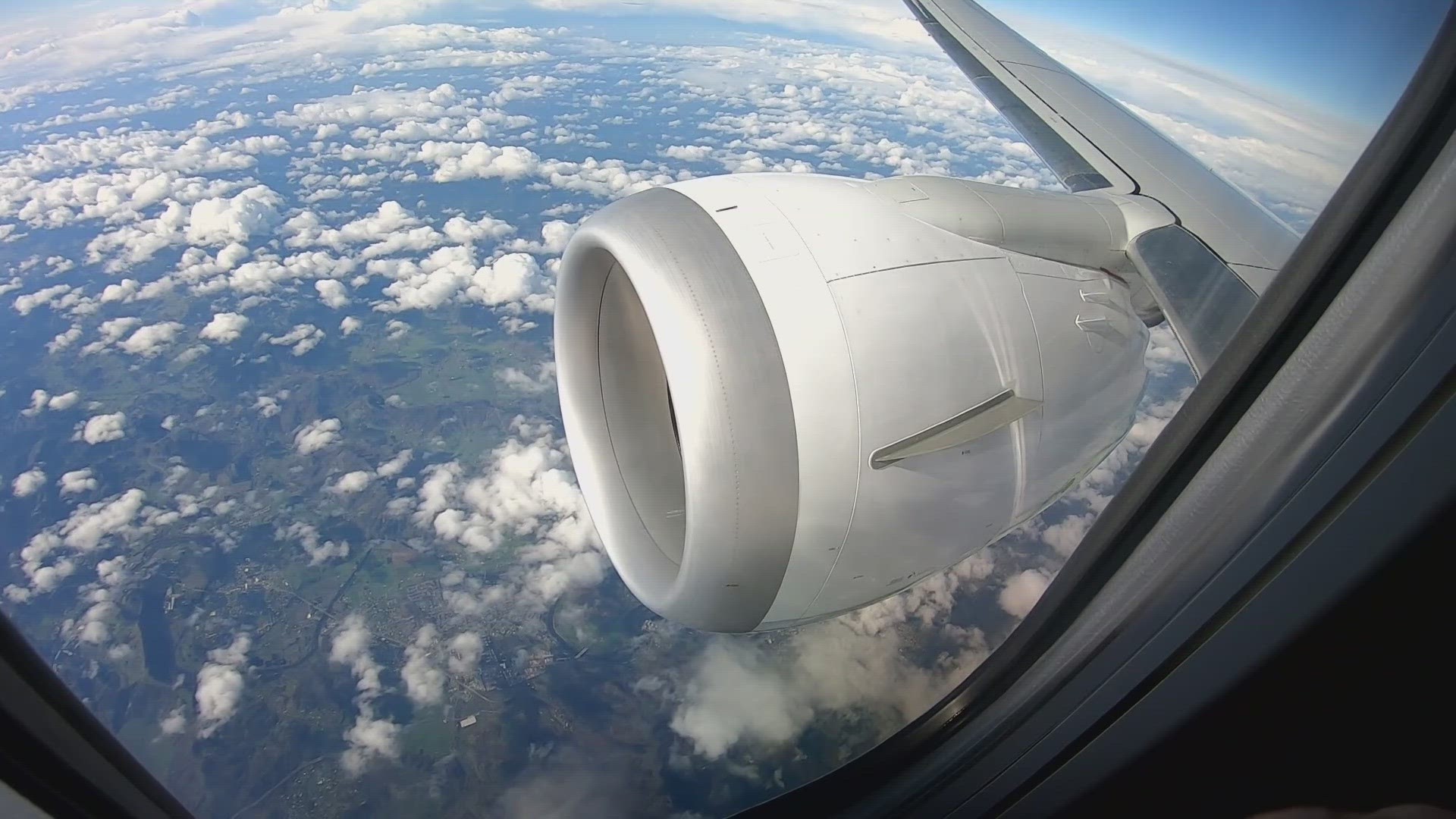EVERETT, Wash. — Western Washington is a pioneer in the aviation industry.
Now, it's pursuing a first-of-its-kind move to revolutionize how to decrease the impacts air travel has on climate change.
The world's only large-scale research and development lab for "Sustainable Aviation Fuel" or SAF could be coming to Snohomish County.
The facility would be located at Everett's Paine Field and would make Snohomish County the world's leader in bringing air travel to net-zero emissions.
At a Tuesday news conference, Snohomish County Executive Dave Somers said, "At Paine Field, we support more than 150,000 jobs and generate $60 billion for the economy each year," pointing to the sky as a jet took off overhead. "And there it goes!"
Along with creating jobs and generating revenue, aerospace also emits about 2.5% of global greenhouse gasses.
The aviation industry has pledged to bring air travel to net-zero emissions by 2050.
That means changing the fuels airplanes burn.
Right now, they run on petroleum-based fuels that pump more carbon into the environment, worsening climate change.
But researchers at Washington State University are developing SAFs that are made from everything from tree debris to plants and even household waste.
"With these fuels, you're recycling the carbon that has already been emitted into the atmosphere. You're not extracting them from the Earth," says Boeing Regional Director of Sustainability Dale Smith. "It means fewer carbon emissions because you're not adding. That's what you're recycling."
SAFs also burn much cleaner in a jet's engine.
They emit fewer carcinogenic pollutants into the air that eventually settle into neighborhoods and waterways.
The proposed Paine Field facility would be a repository for SAF samples from around the world, allowing researchers to store, share and test them.
Production methods would be refined.
Researchers would be able to do large-scale testing, in the thousands of gallons, to make sure the fuels are safe and able to be used in all aircraft.
While the cost for a gallon of SAF is currently two to four times that of standard jet fuel, sustainability experts say SAFs developed in Snohomish County are our best hope to keep airline emissions from flying even higher.
"We have to find a way with these fuels," said Smith. "This is the approach."
The state Senate is proposing $6.5 million in start-up funding for the project.
If all goes as planned the facility could be operational in three to five years.

